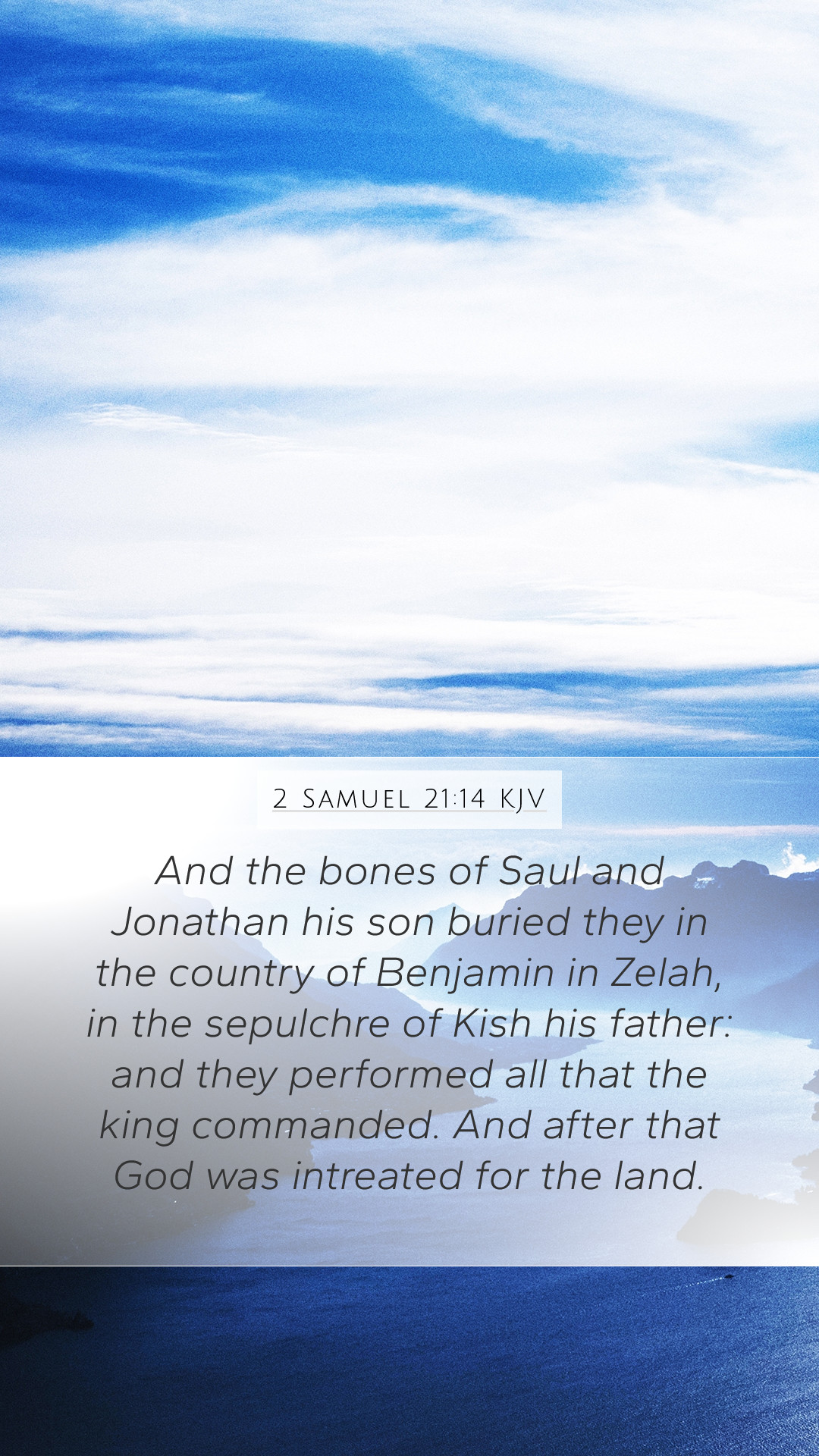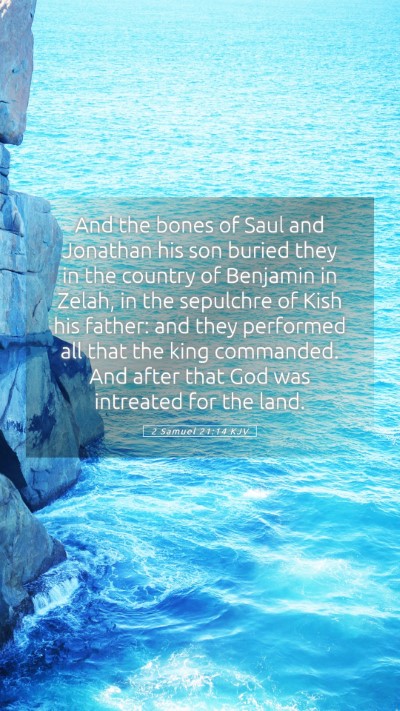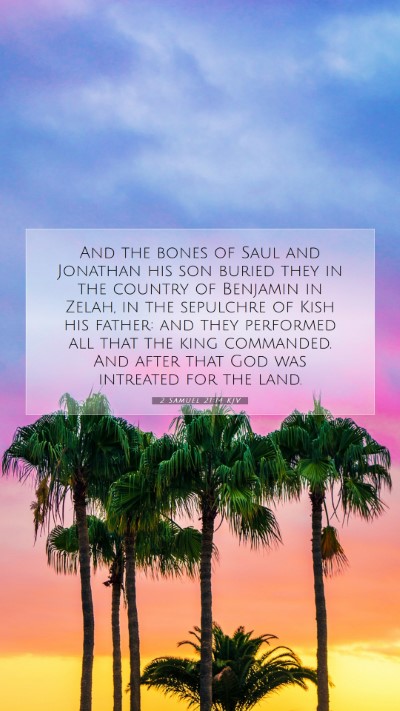Understanding 2 Samuel 21:14 – A Comprehensive Biblical Exegesis
Bible Verse: 2 Samuel 21:14 (ESV) - "And they buried the bones of Saul and his son Jonathan in the land of Benjamin in Zela, in the tomb of Kish his father. And they did all that the king commanded. And after that, God responded to the plea for the land."
This verse encapsulates not only an act of reverence but also ties together the themes of honor, reconciliation, and divine favor. The burial of Saul and Jonathan and God's response highlights the importance of acknowledging the past while seeking a blessed future.
Key Insights from Public Domain Commentaries
Matthew Henry's Commentary
Matthew Henry emphasizes that this passage signifies a closing chapter on the division that existed due to the enmity surrounding Saul and David. By burying Saul and Jonathan honorably, David sought to reconcile with his past and with the tribe of Benjamin. Henry notes how respecting the deceased enhances communal peace and unity, as God looks favorably upon such acts.
Albert Barnes' Notes on the Bible
Albert Barnes interprets this verse as highlighting the faithfulness of David to the covenant he made with Jonathan. By ensuring that Saul and Jonathan received a proper burial, David fulfilled a duty of honor and love toward his friend. Additionally, Barnes notes that God's response to the land's plea was contingent upon these acts of respect, showcasing the relationship between human actions and divine responses.
Adam Clarke's Commentary
Adam Clarke provides a historical context for this event, elaborating on the cultural significance of burial practices in ancient Israel. He points out that the act of burying the bones of Saul and Jonathan in their homeland reflects a deep-rooted respect for lineage and family. Clarke connects the mention of Kish, Saul's father, to the importance of ancestral honor in Israelite society, indicating that fulfilling such a burial reflected the restoration of dignity and honor which God blesses.
Thematic Analysis
- Honor: The respectful burial reflects the Israelites' deep cultural emphasis on honoring the dead.
- Reconciliation: This act symbolizes a transition from conflict to unity under David's leadership.
- Divine Response: The latter part of the verse conveys God's responsiveness to acts of righteousness among His people, indicating that human actions can influence divine favor.
Application of 2 Samuel 21:14
The verse serves as an important reminder about the significance of honoring our predecessors and the impact our actions can have on our communities. In the context of Bible study, this verse encourages reflections in group discussions about the importance of legacy, unity, and the acknowledgment of historical relationships in our faith journeys.
Cross References
- 1 Samuel 20:14-16 - Jonathan's covenant with David
- 2 Samuel 1:17-27 - David's lament for Saul and Jonathan
- 2 Samuel 4:4 - The aftermath of Saul's death
Conclusion
In concluding this analysis of 2 Samuel 21:14, we see that it serves not just as a historical event but as an instructive passage on the virtues of honoring our commitments and the rich interplay between human behavior and the divine. Whether in Bible study groups or personal reflection, understanding Scripture through such narratives deepens one's faith and encourages a life of respect and integrity.


